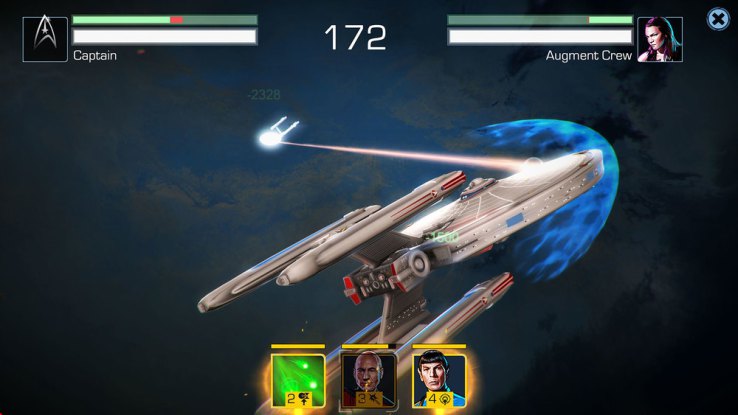

Disruptor Beam has raised another $8.5 million to turn some of the best-known entertainment franchises into mobile games.
It released its first title, Game of Thrones Ascent, in 2013, with Star Trek Timelines following last year. (The latter offers a particularly novel approach to Star Trek, combining space combat with roleplaying elements as characters from different Trek TV shows and movies are thrown together thanks to a convenient temporal anomaly.)
The Boston-based startup says revenue grew by more than 300 percent last year, with most of that growth coming from Timelines. It also says that more than 15 million people have played its games.
Disruptor Beam founder and CEO Jon Radoff predicted that this will be another big year for Timelines, with the launch of a new TV show, Star Trek Discovery, bringing fans back to the franchise.
As for whether Timelines will include new characters from that show, Radoff said, “I know one way or another, Discovery will have a huge impact on us. The extent to which we incorporate elements of the show, that’s still TBD.”
Next up is The Walking Dead: March to War, a multiplayer strategy game based on the popular zombie franchise, which is scheduled for release sometime in 2017. Radoff said the company has other games in development, also based on well-known franchises, though it’s too early to announce them.
The new funding is a Series B led by GrandBanks Capital and Romulus Capital. Radoff noted that GrandBanks participated in Disruptor Beam’s $3.2 million Series A, and the firm has in fact bought out another early investor, Midverse Studios.
Besides launching new games and continuing to develop existing titles, Radoff plans to use the funding to build out Disruptor Beam’s publishing platform, which covers things like marketing, customer acquisition and support.
Those are all issues that other mobile gaming companies have to tackle, but Radoff said, “Our problem is different because of the [intellectual property]. A lot of games, when you’re talking about customer acquisition, you’re buying Facebook ads and getting people to install and spend money. Of course, we do that too, but it’s about being really authentic to the IP. … We see ourselves down at a grassroots level, creating a deeper level of engagement.”

